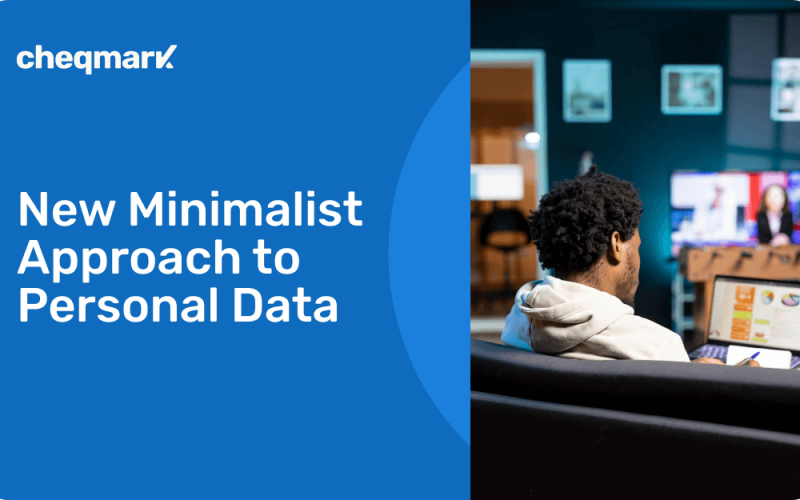When you hear the word minimalism, you immediately think about empty countertops, neatly folded clothes, and having fewer belongings. Sure, this is a valid definition of minimalism. However, minimalism is no longer confined to the physical world. These days, it has stepped into the digital space where clutter definitely looks different but feels just as heavy.
In place of old magazines, you have old email accounts that you no longer have the password for and thus have not used for many years. In place of crowded closets, you have personal details that are floating around in different places on the web that you don’t even recall anymore. Sadly, every login, sign-up form, and online order leaves a trail behind.
Contrary to popular belief, digital minimalism is not just about putting your phone away at night or else deleting social media apps. Yes, these things help. However, they barely scratch the surface of digital minimalism.
Beyond Screen Time: Redefining Digital Minimalism
Digital minimalism is usually linked to screen habits. You hear advice about checking your phone less, muting notifications, or limiting social media. These steps matter, but there is another layer that often goes unnoticed. How much of yourself are you leaving behind online, and how intentional are you about it?
A BBC article on digital minimalism explains that the goal is not to abandon technology. Instead, the goal is to use it in line with personal values. The same principle applies to your personal data. It is not about hiding from the web. It is about choosing what stays visible and what gets cleared away.

Think of it like a wardrobe. A minimalist doesn’t stop wearing clothes. They just keep the essentials and remove the excess. Online minimalism is no different. By trimming down your data footprint, you are left with the version of yourself that feels most aligned with who you are today.
If you want to be able to cut through all the noise of the online world, one starting point is looking at how to clean up the records that are tied to your identity. For instance, a white pages opt out can reduce the number of public sites where your name, address, or phone number appears. This is definitely minimalism in a modern sense. It’s about keeping only what helps and letting go of the unnecessary.
The Hidden Productivity Drain of Excess Data
Physical stress has been shown to cause stress. Having messy surroundings increases mental load and makes it difficult to focus. The same applies online. However, this is not always visible.
All the marketing emails you receive as well as the random calls that come from numbers that you don’t recognize eat up time and energy, even if it is not immediately evident. Sure, these distractions seem minor. However, they do have an impact once they start adding up.
You need to simplify your online presence so you can take back that energy. Prevent these things from happening by taking a proactive approach. Use minimalism as a productivity tool. With less digital clutter, you will have more space to think, create, and live with more focus every day.
Why “Less Is More” Applies to Your Data
Minimalism has always been tied to the idea that less can actually give you more. Owning fewer objects does free up time, money, and attention. The same principle does apply to personal data. But how can this be practiced?
Always bear in mind that every time you sign up for a service or buy something online, your details get stored somewhere. A lot of times, they linger long after you have stopped using the service altogether. Because of this, your data piles up in the background without you ever remembering them anymore.
Make sure that you take a proactive approach when it comes to deciding what stays and what goes. It’s about deleting the accounts that you haven’t touched or accessed in a long time, unsubscribing from irrelevant newsletters, and choosing to opt out of directories that don’t serve you any longer. As a result, you get a cleaner, lighter, and more intentional online presence.
The Role of Data Brokers in Online Clutter
One of the biggest reasons data clutter exists is because of data brokers. These companies collect personal details, organize them into databases, and sell access to other businesses. You may not know them by name, but they know a lot about you.
Your phone number, your current and past addresses, and even your buying preferences can be part of these databases. Once your details are collected, they are rarely deleted. They spread across platforms and can remain for years, creating endless cycles of clutter.
Practicing digital minimalism means stepping into this cycle and stopping it where possible. When you request removal from these lists, you close doors that would otherwise stay open indefinitely. That action is the digital equivalent of clearing a garage full of items you never use.
How Simplifying Data Fits Lifestyle Minimalism
Achieving lifestyle minimalism is easy: you have to own fewer things so that you can spend more time and energy on the things that truly matter. The same approach works for your digital life.

To start, make sure that you live with intention. All minimalists choose quality over quantity in physical objects. As for digital minimalists, it’s all about choosing where their information belongs and where it does not. As a result, it becomes easier to achieve clarity and calm.
Time Saved Through Data Minimalism
When digital clutter builds up, one of the first things we lose is time. After all, we need to spend a lot of time sorting through emails, deleting spam, and blocking calls. Sure, they might seem like insignificant activities, but they do take up some of our time.
As you simplify your data presence, you reduce the chances of facing those distractions. Eventually, you notice yourself reacting less and creating more. Productivity is not just about doing more; it’s also about removing the things that eat away at your focus.
Living Light in a Data-Heavy World
These days, simplifying your life online is the new frontier of minimalism. It’s more than just putting your phone down or decluttering apps. It’s more about rethinking how much of yourself you leave behind digitally.
Taking proactive measures to make sure that you leave no trail behind is important. Always choose clarity over chaos. Make sure that you always focus on reclaiming your energy and focus so you can stay calm in a world where information seems to never stop multiplying.
It’s true that minimalism does bring more peace. The same rule applies online. As you cut through the digital noise, you create a space for the things that matter the most. This helps you live more peacefully in a data-filled world.


